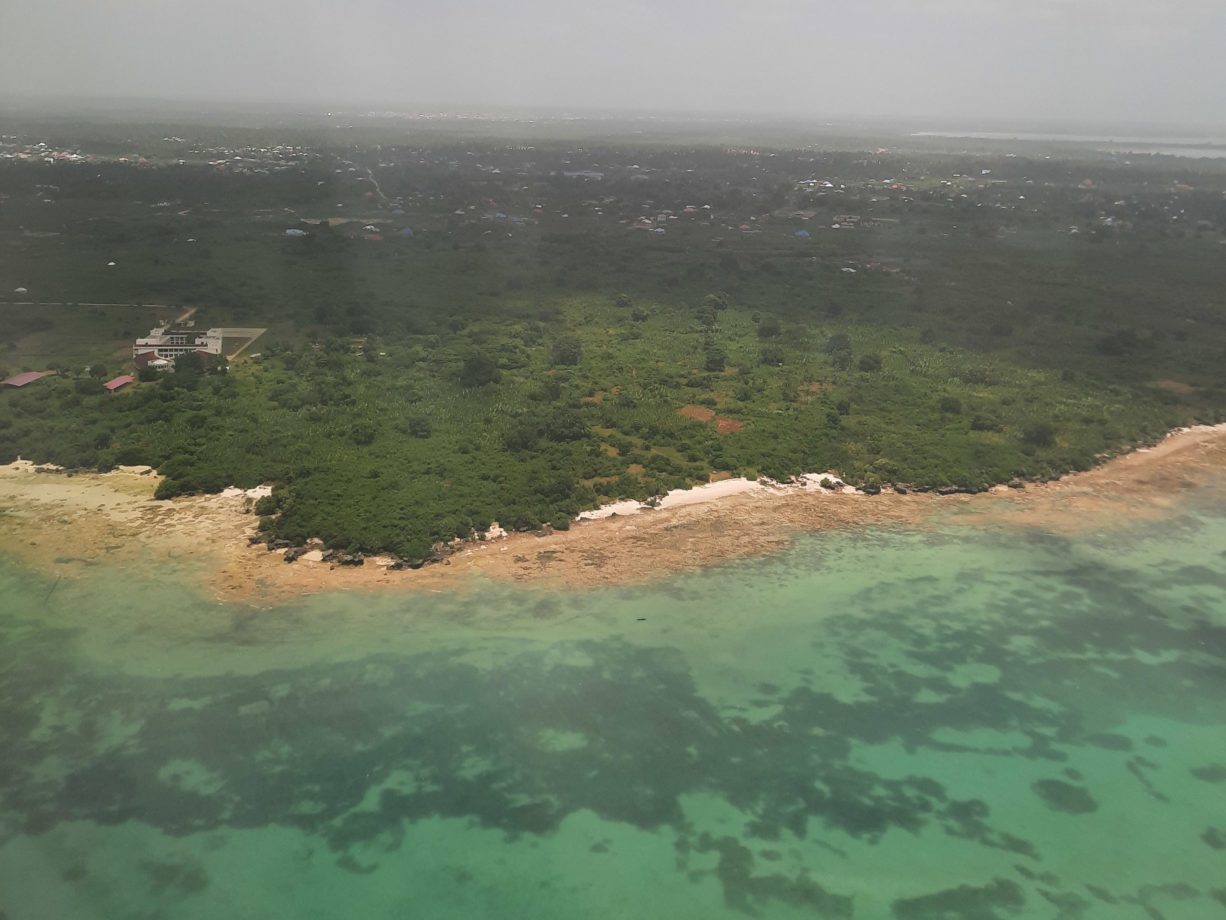
”Karibuni Zanzibar” – “Welcome to Zanzibar” – is written on the airport control tower as I take a sniff of the exotic 30-degree wind swirling around my nose. Awaiting me and my colleague Barbara Pichler is not only our Swahili translator William Mdemu, but also a very special mission: in the next 10 days we will train 20 participants to become b|u|s trainers (b|u|s means “agribusiness training”). Anyway, we start with that, the second part takes place in May.
We are delighted with the high quota of women (50 %), as promoting women in agri-culture forms an important part of the international efforts made by the Andreas Her-mes Akademie (AHA).
We are accommodated in the newly built guest house of the State University of Zan-zibar (SUZA) and have well-ventilated, spacious seminar rooms at our disposal. Di-rectly behind the site, the Indian Ocean softly swooshes over the yellow sand.
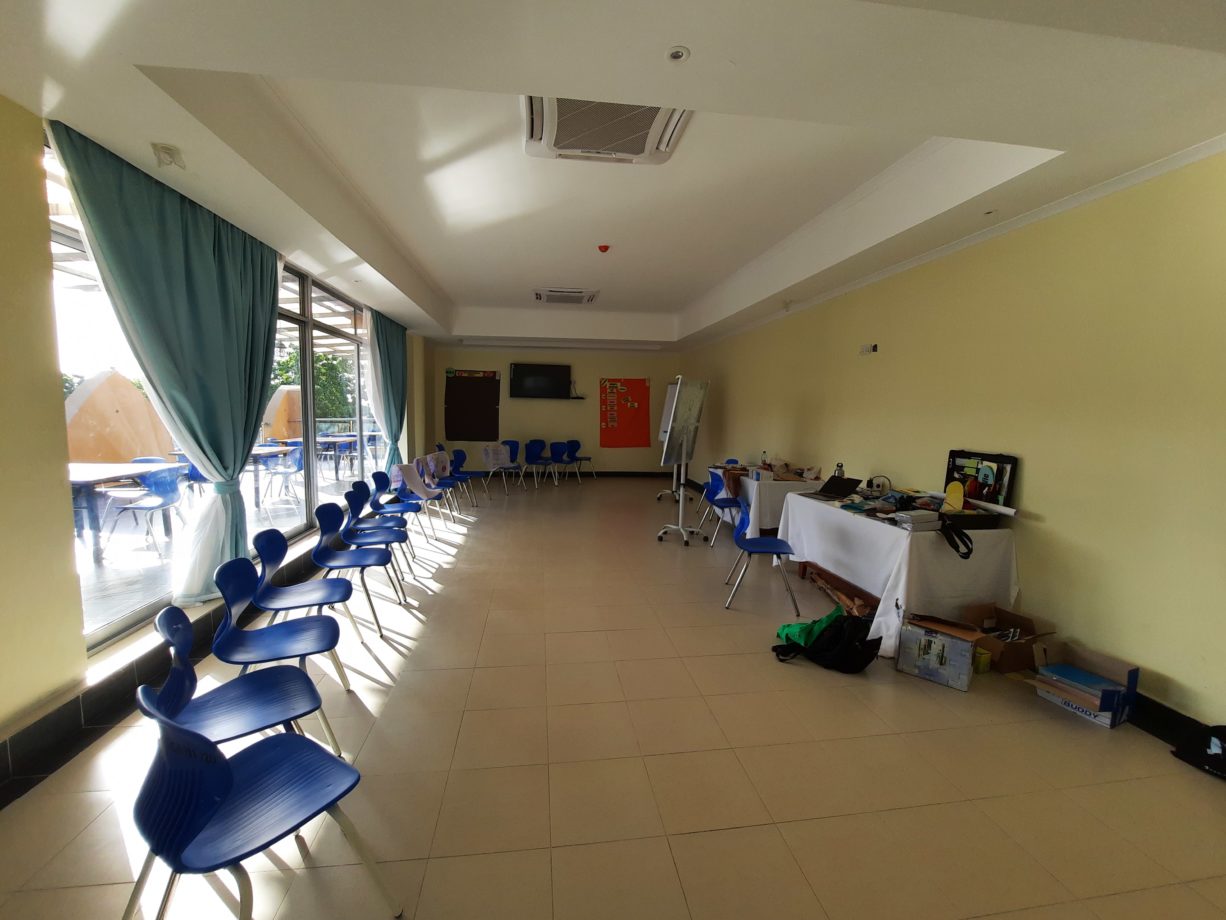
Many of you may be familiar with the a href=”https://www.andreas-hermes-akademie.de/seminar/bus-unternehmertrainings-fuer-mehr-erfolg-und-lebensqualitaet/” target=”_blank” rel=”noopener”>AHA’s b|u|s training programmeA here in Germany which, in nine modules, supports German farmers up and down the country in developing their entrepreneurial thinking and actions.
In the international context, the target group for the b|u|s training which the AHA carries out in various African countries and in India consists primarily of smallholders; they will be shown how it is possible to generate adequate income for themselves and their families over the long term.
Since 2006, the AHA has developed this b|u|s training into a three-part b|u|s trainer course: “b|u|s international Module 1” focuses on the personality of the entrepreneur; “Module 2” addresses the company and business and “Module 3” focuses on creating an understanding of a business plan.
Now it is time to put this into action. The participants are eagerly waiting for representatives from the participating organisations to open the training. TAHA – the Tanzania Horticultural Association – is the client for this project; TRIAS – an international development organisation headquartered in Brussels – is responsible for organisation locally and the AHA, represented by Barbara and me, is carrying out the training. The training is funded by the European Union.
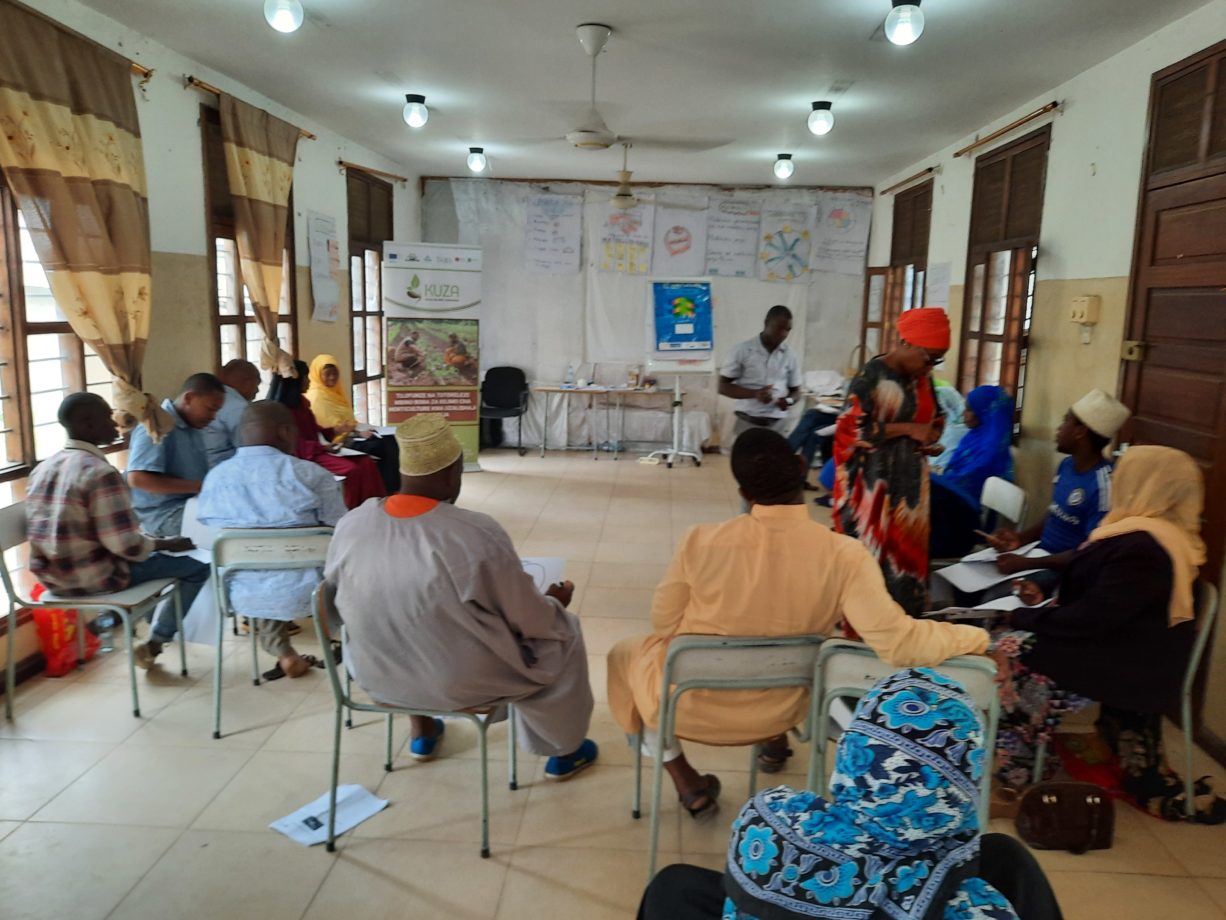
While the b|u|s international Module 1 training encompasses three days, the course to become a trainer involves a 10-day programme in which teaching b|u|s content and didactics alternate with practical training simulations. Seven days later, there are then two real b|u|s training sessions for farmers from the surrounding area, which are carried out by the training group itself.
Joel Kaduma and Kassim A. Kassim are supporting us in this. They are Master Trainers from Tanzania who have delivered many b|u|s courses and have received additional training to become Master Trainers. In the future, they will take over our role training the trainers so as to create a sustainable training system that will continue even after the supporting organisations have left. “The b|u|s program is the best thing that has happened to me and farmers in my country” says Joel, himself a farmer, smiling warmly.
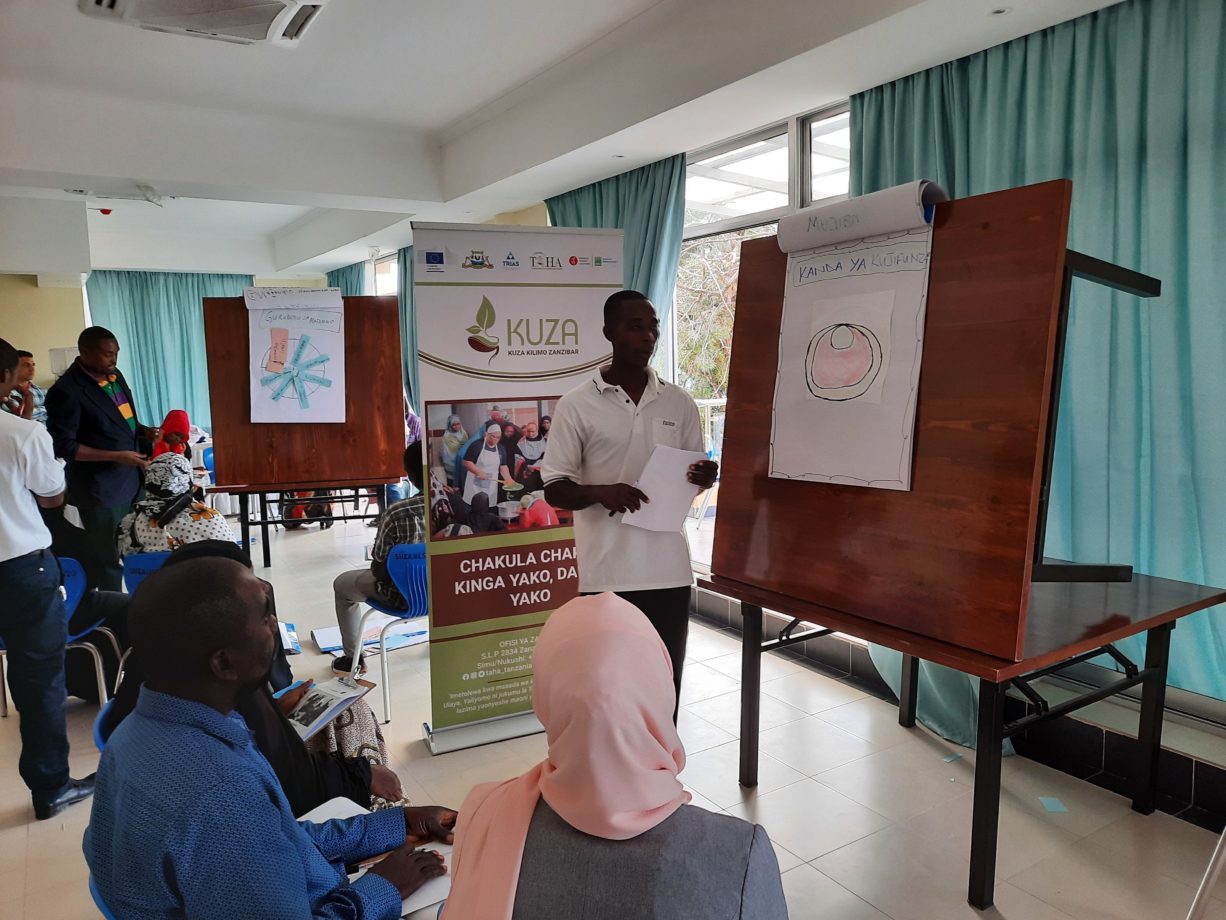
Within a few days, the participants’ development is proceeding at a fast pace. Those with a natural talent for conveying course content shine right from the start, while others develop their training ability step by step. After two b|u|s elements each, the participants put what they have learned into practice in training simulations, i.e. they train their own colleagues in short sequences. “That’s where I learn the most,” Salum says, launching into the task with serious passion.
“I know for sure that this is going to be my job in the future,” Asma says, and you believe that when you see how confident she is in the training simulations or the dedication with which she creates her posters.
Even though the participants speak Swahili during the simulation and later during the first real training, we can still tell whether, for example, a connection can be established with the audience and whether body language is open and effective. The quality of the content is judged by Joel and Kassim, so that at the end we have a clear idea of who among the participants has what it takes to become a b|u|s trainer. And for 14 participants it was clear after the training: “We are carrying on!”
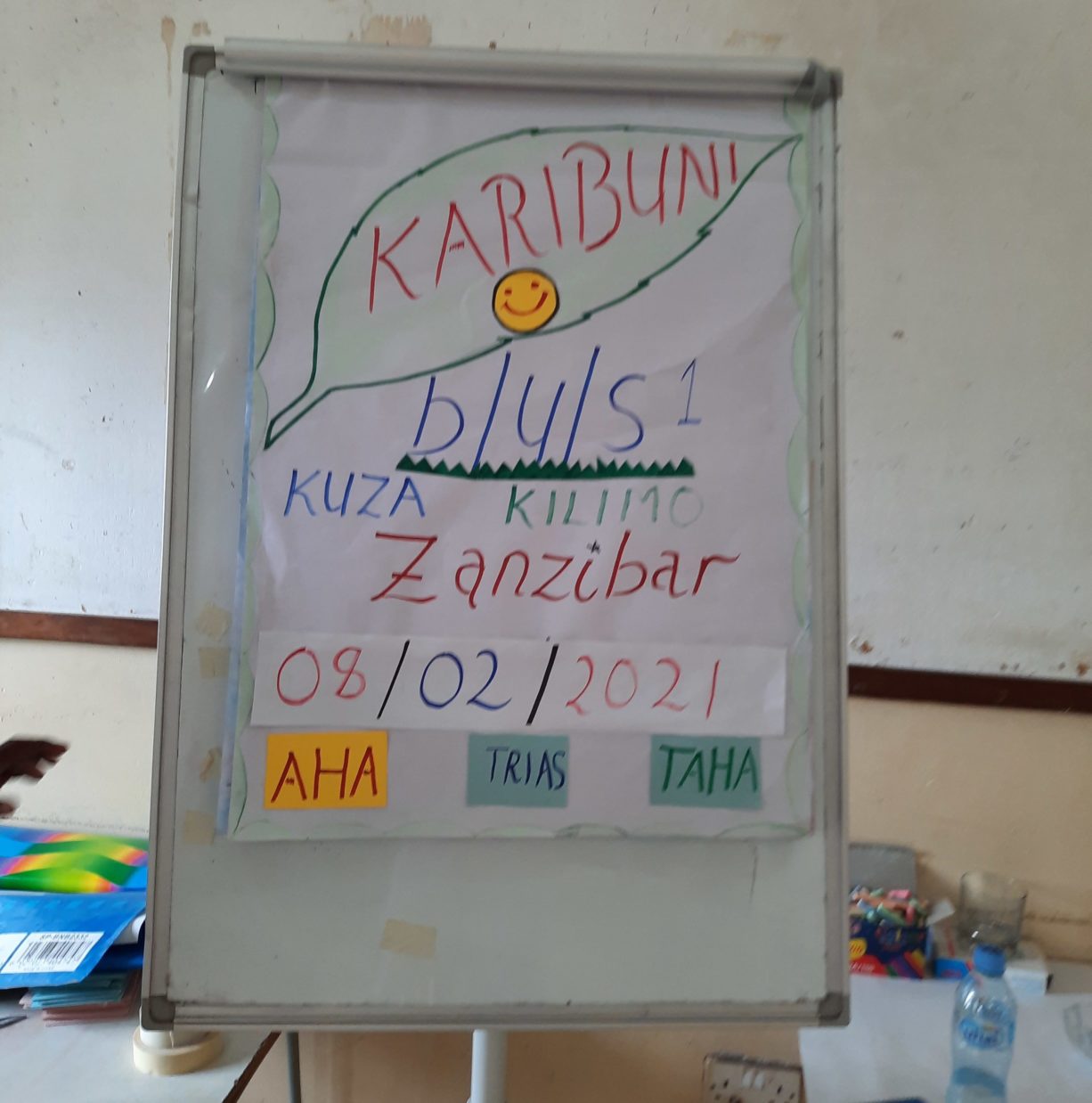
“The human spirit is a flame that wants to be lit.” That’s my credo and the AHA’s b|u|s trainer course is just the right tinder for that. I am looking forward to the next part – the b|u|s international Module 2 Course for Trainers – and to seeing the participants again in May.
This could be of interest to you:
-
International Cooperation -
International Cooperation Let’s work on those potatoes! Traditional and Mechanised Harvesting in Kenya
Read -
International Cooperation Study trip for associations from Benin
Read
